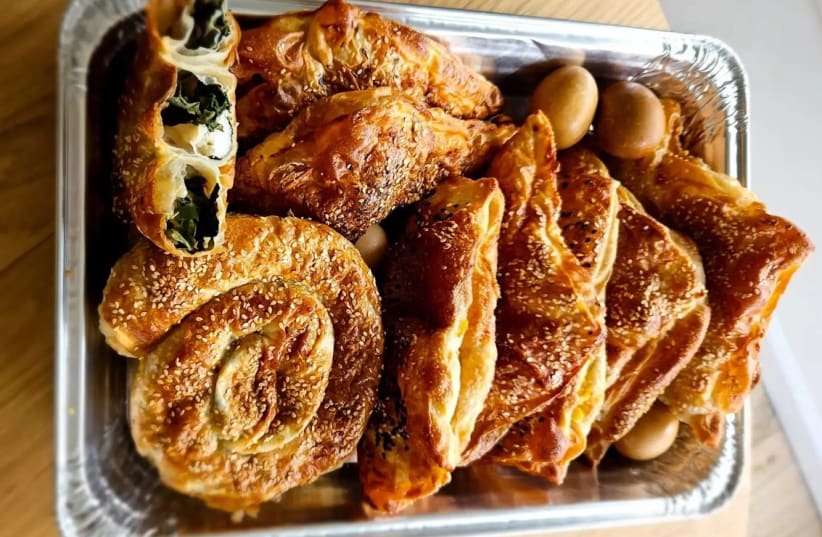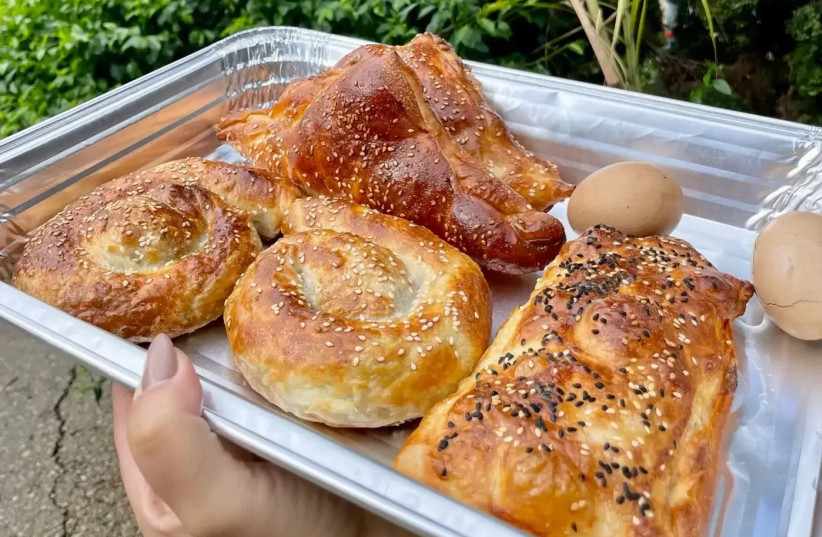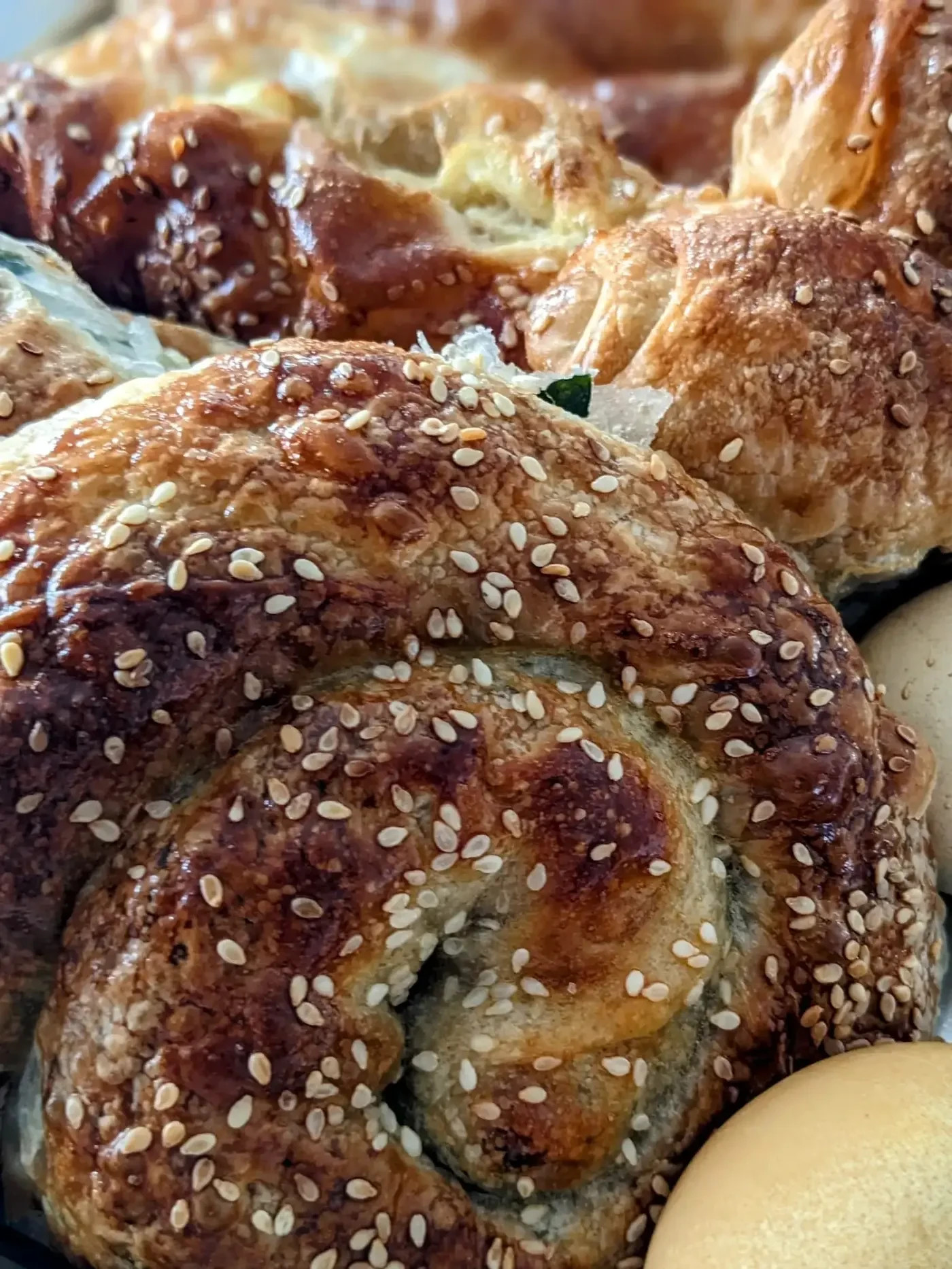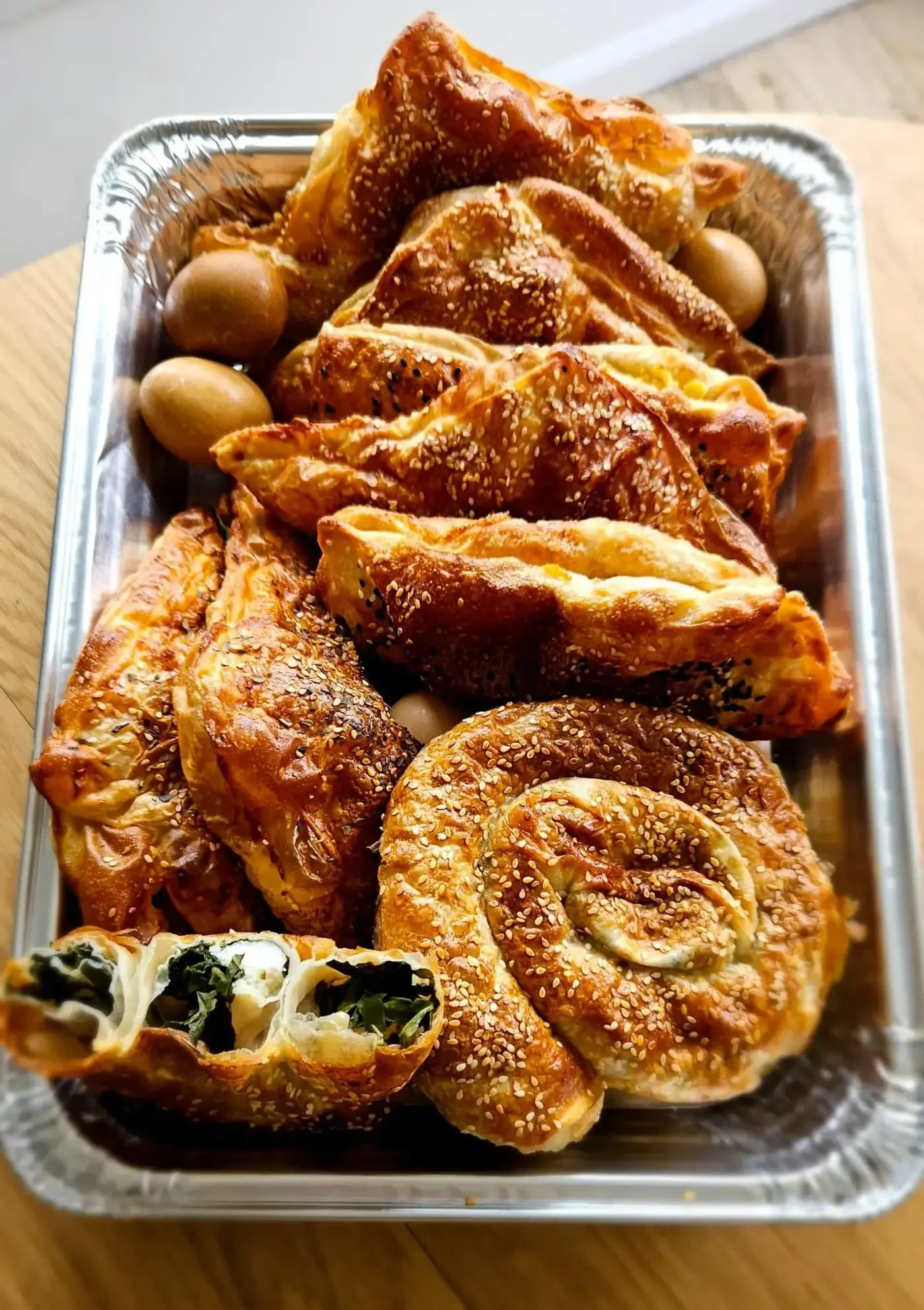Clara Serdes recounts a recipe that traverses "centuries" within her family, and I'm guided almost automatically. This combination of words, and the remarkable ease with which it escapes into the atmosphere of mealtime conversations typically starts its own whispers of untruthful discovery.
In all columns of "Food on the Go,"
With her, however, it's reversed. Her grandmother surely made it, and her grandmother's grandmother as well. Even from the side of her father and grandfather, there's strong talk about the recipe and its preparation, and from there, it even trembles further down, into the depths of the Turkish family roots.
And here, just like that, "centuries" become "at least centuries," and all you want is to start eating already.
The silver tray. Clara's burekas.
View this post on Instagram
Clara Sardas boasts of "handmade work." If a recipe that passes "for centuries in the family" is a cliché of food that only a few (like her) are capable of proving, then "handmade work" is if all the eye-rolling sentences and lifted eyebrows angle into one.
Because "handmade work," everyone knows in my opinion, is in 99% of cases someone else's handmade work, probably someone who works in a factory, not to mention "home-made," the English version of the expression that somehow only makes the jokes even more embarrassing.
With her, however, it's reversed. She, her son, and daughter-in-law open and roll, cut and cook, bake and wrap - all by hand, of course. If you think it doesn't affect the taste, it's because you've spent too much time on "homemade."
"Clara's burekas" began, as most delicious things begin, in the Izmir area of Turkey, the unofficial "Burekas City" seemingly, and the most official one in fact. Sardas was born not far from there, in the town of Tire, and immigrated to Israel at the age of 10. Doubtful if she indeed arrived here with a proven talent for opening dough and rolling burekass, but years later it turned out that origin and family roots don't really require proof.
The business itself was born and flourished, as most of these small family businesses were born and flourished, during the Corona period. She seized the free time and the boredom of similar days to herself, the collective craving for dough, and the oven obsession we all developed, and started selling. From home to neighbors. From neighbors to the neighborhood. From the neighborhood to the entire Givat Carmel. And from there - to the Haifa beach and the slopes of Carmel, to events and picnics, and more and more and more.
The principle is simple - advance orders throughout the week, for at least 10 units (150 shekels) for self-collection from the moshav or by arranging delivery - will provide you with an Izmiri-Turkish journey and a time capsule for days when craftsmen and bakers sold their craft with pride and without the pressure of livelihood and out of a desire to say something beyond "tag us on social media."
The burekass themselves fulfill the agreement of "you need to taste to understand." Crispy on the outside, soft on the inside, and light-years away from almost any other burekas you've eaten. The dough opens in oil, folds and rolls, and receives a filling devoid of any hint of industry. Potatoes are peeled, cooked, and mashed to perfection, mocking the powders of other places. Thyme is rinsed and chopped. Knife and cutting board, exactly like that. Onions rise to the pan. Real cheese, authentic. The scent of egg. Oven.
These things are supposed to be clear on their own. The very mention here clarifies how far it is from reality, and how Clara's burekas is the real deal.
There are excellent versions of cheese and potato, of course, and that same great thyme, tangy-bitter. There are options for vegetarians and there are hard-boiled eggs, Hemingway style, accompanied by a symbolic addition (three in a dozen shekels).
The logistics are fabulous, but it works. Adi, Clara's son, collects orders (054-4540001) and is also responsible for deliveries (between Haifa and Zichron Yaakov, with a justified emphasis on spring picnic areas and summer beach areas, including wedding breakfasts and birthdays that clarified well who truly knows how to rejoice and who less) and for distribution to the two fixed sales points, in addition - at the olive press Makura and in Babushcoffee, the coffee cart in Caesarea.
In the meantime, he shops, prepares infrastructures, and clears the stage for his wife, Hagit, at exactly the right moment. So, turnover after turnover, she clarifies how things that happen in the family don't necessarily have to flow linearly and can intermingle.
Even better. In her case, even Clara herself admits with honor and herself that she makes "even better than her." There are greater compliments, of course, but I can't think of them right now. Fragments of joy, there's no home like this.
Clara's burekas, Geva Carmel, 054-4540001



